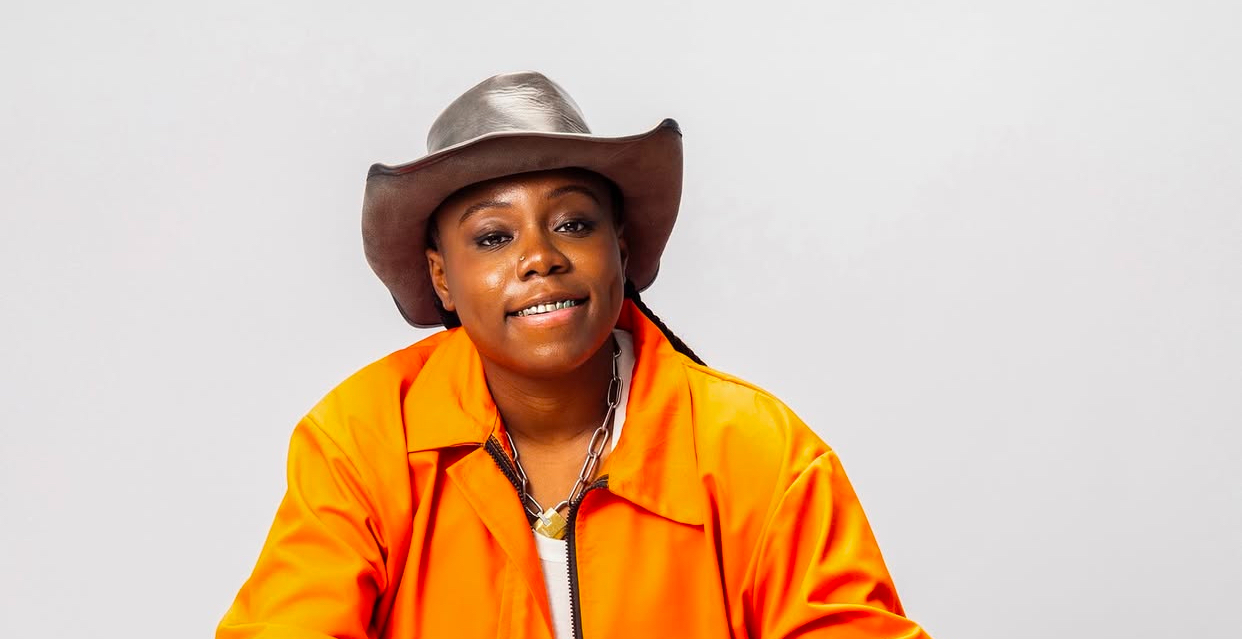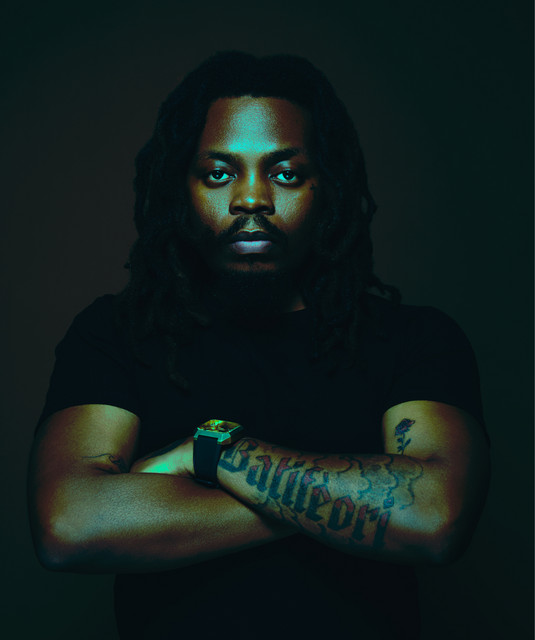Music in Nigeria has always been more than melody and rhythm. It is history, identity, social commentary, and sometimes, spectacle. One of its oldest threads is praise-singing: honouring people, naming them, lifting them up. What began in tradition and ceremony has evolved. It has been blended into lyrics, hooked into brand-names, woven into features, and amplified by social media. Today, “name-dropping” or “shoutouts” are powerful tools in Afrobeats, Fuji, and pop culture. But asides being flexes, they are calculated moves, traditions, and sometimes moral choices. Let’s trace how we got here, see how it’s being used now, and what it suggests for artists and listeners.
From Oríkì to Fuji
To understand modern praise-singing, one must go back to oríkì. Oríkì is the Yoruba tradition of poetic eulogy, of greeting, praise, identity. According to researchers, it is used to praise people, places, families, and accomplishments. It is also part of ceremonies like namings, coronations, funerals, etc.
In the same cultural sphere, Fuji music emerged in the 1960s-70s among the Yoruba, evolving from devotional singing, Apala, and other local musical practices. Fuji’s earliest lyrics already included praise of community leaders, wealthy patrons, prominent figures and more. Alhaji Sikiru Ayinde Barrister, often called Barrister, pioneered what became Fuji. Praise here was not a gimmick, it was social glue. If a patron paid for a Fuji show, the musician might honour him in song; if a chief gave support, praise was expected. Recognition carried prestige, legitimacy, and sometimes protection. There was an economy in praise.
Afrobeats and the Name-Drop Era
Fast forward to today and the practice is still alive, only transformed. Praise now shows up in lyrical hooks, shoutouts in verses, Instagram captions, even ad libs in live performances. The “praise” is less often poetic or ancestral and more often about status. Like brands, business people, politicians and celebrities.

One of the clearest recent examples is Tiwa Savage on Who’s Your Guy (Remix) by Spyro. In her verse, she name-drops Tunde Ednut, Don Jazzy, Jowi Zaza, and Olamide (“Baddo”), among others. These are not random names. They are figures with reputation, wealth, and influence. Don Jazzy is a legendary producer, Jowi Zaza is a businessman, Olamide is a heavyweight rapper. Tiwa is signalling her connections and also drawing in fans who recognise those names. It’s social capital turned into lyrics.

Another example is Teni’s Billionaire. In 2019, she directly referenced Dangote and Otedola, saying in interviews that she grew up around praise-singing and wanted her music to feel relatable. By name-dropping these billionaires, she connected with people’s aspirations. Hearing those names instantly sets the tone of ambition, wealth and possibility.

Patoranking’s Celebrate Me takes it even further. The whole song is essentially one long praise roll call. He shouts out Adenuga, Obi Cubana, Elegushi, Obafemi Martins and others, calling them “Big Names.” Beyond flattery, the point is also thematic. It explicitly states, “celebrate me, now when I dey alive.” It’s praise as both cultural duty and emotional appeal.

Olamide’s early hit Yemi My Lover is another strong marker of how name-dropping operates in Nigerian music. At the time, Olamide was still an emerging street rapper, and weaving familiar names into his songs gave him both entertainment value and social credibility. But the story didn’t end with the music, it spilled into real life.

The name “Yemi My Lover” originally belongs to actor Yemi Ayebo, whose 1990s Yoruba film of the same title became a cult classic. When Olamide flipped it into a song, Yemi initially felt honoured. In interviews, he admitted the shoutout gave him renewed visibility, even boosting his popularity with a younger audience. But his excitement soon turned to frustration. He says Olamide never reached out, despite his repeated calls and attempts to contact him through intermediaries like Fuji star Pasuma. More importantly, he claims he was never compensated for the use of his name.
This sparked a wider debate on what counts as homage versus exploitation. Fans sympathised with Yemi, pointing to how older cultural figures often get left behind even when their work or identity is re-packaged by newer stars. Others argued that simply using someone’s name in a song doesn’t always require payment. What’s undeniable, though, is that this incident underlines the business side of praise-singing and shoutouts. For one artist, a name-drop can be a fun lyrical device; for the person named, it can carry deep cultural and financial weight.

Asake’s rise also came with a moment that showed the double edge of shoutouts. In 2023, on his hit 2:30, he slipped in a line referencing actor and comedian Jigan Babaoja: “Jigan, jigan, ẹsẹ mi o de’lẹ, de’lẹ”, a nod to Jigan’s disability, which has long been part of his public image. But this time, Jigan didn’t take it lightly.
He took to Instagram, jokingly calling out Asake and demanding accountability. For him, the lyric wasn’t just playful wordplay, it was a reminder of years of mockery, and he insisted that artists couldn’t casually turn people’s realities into punchlines. The callout went viral, sparking debates on respect, creativity, and the fine line between homage and ridicule.

What’s striking is how it ended. Unlike Yemi My Lover’s unresolved frustration with Olamide, Jigan pressed the issue until he was reportedly compensated. He later confirmed it with a hyped up post, flipping the insult into a payday.
The episode captures how shoutouts have become a business transaction in themselves. A line in a hit record can hurt, flatter, or profit someone else and in today’s music economy, those named are increasingly ready to demand their share.

Burna Boy’s Dangote is a more symbolic use. He sings “Dangote, Dangote, Dangote still dey find money”, pointing to Africa’s richest man to emphasise hustle. It’s not so much about Dangote himself but about the paradox of wealth and ambition in Nigeria. The name-dropping is a simple and relatable way to express a societal truth.
Why Artists Do It
There are several reasons artists continue this tradition, whether consciously or instinctively.
First, cultural familiarity. Nigerians know the power of names. Names are important, it is believed that a person’s name can order their steps towards success or failure. Oríkì is ingrained, and even outside Yoruba culture, the idea that naming someone carries honour and weight is understood. When you hear “Elegushi,” “Dangote,” or “Otedola” in a song, you don’t need explanations, you know what they represent.
Second, aspirational branding. Fans want to dream big. Mentioning billionaires and moguls helps artists position themselves alongside success stories.
Third, commercial leverage. Name-drops often spark headlines. They generate streams, memes, and buzz. Sometimes they even create opportunities, from relationships and patronage to brand deals. Atimes the celebrity mentioned notices and rewards them, like in hype-man Isegun Johnson’s case. And even if no money exchanges hands directly, the perception of closeness to wealth or influence can help an artist’s career. Carter Efe is a solid example. Following his 2022 hit songs with Berri Tiga, Machala, the skit maker became more popular. The song was dedicated to Wizkid, whose alias is Machala.
Fourth, respect and patronage. In Fuji, artists praised patrons who funded their shows. Today, a mention of a business mogul might catch that person’s attention and lead to invitations, gifts, or connections.
Finally, there’s an emotional and moral side. Teni has said her mentions are about motivation. Patoranking’s Celebrate Meis about giving flowers before death. So praise-singing is not only materialistic. It can carry values of gratitude, recognition, and community.
The Tensions
But this practice is not without its critics. Some argue that constant praise of the rich reinforces inequality. If every song is about billionaires, what space is there for the everyday hustler? Others worry about authenticity. Is an artist praising someone because they truly admire them, or because they’re angling for attention?
There’s also the risk of overuse. If every new release is stacked with big names, the device can lose its power. At worst, it starts to feel like product placement. And there are legal risks, too. Mentioning a person in the wrong context can cause backlash or even lawsuits.
Evolution of Praise in Nigerian Music
From the oríkì of Yoruba culture to Fuji’s eulogies for patrons, praise has always had its place. What’s changed is the scope. In the 70s and 80s, names were often chiefs, local businessmen, or family lineages. By the 90s and early 2000s, it expanded to include lifestyle symbols like cars, estates, and big spenders at shows. Today, in Afrobeats, it’s billionaires, politicians, global brands, and sometimes even foreign icons.
The thread running through all of this is the same, that recognition equals power. To be named is to be seen. To name is to connect yourself to prestige.
Conclusion
Praise-singing in Nigeria hasn’t disappeared, it has adapted. From oríkì in Yoruba culture to Fuji’s live tributes to today’s Afrobeats shoutouts, it remains a living tradition. It’s a bridge between culture and commerce, authenticity and ambition.
The business of name-dropping is layered. It can elevate and inspire, but it can also reinforce hierarchies or seem opportunistic. What is important is how it is used. Whether to flatter for favour, to critique society, or to pass on cultural values.
As long as names carry weight, Nigerian music will keep calling them out. The beat may change, but the shoutout will remain.














